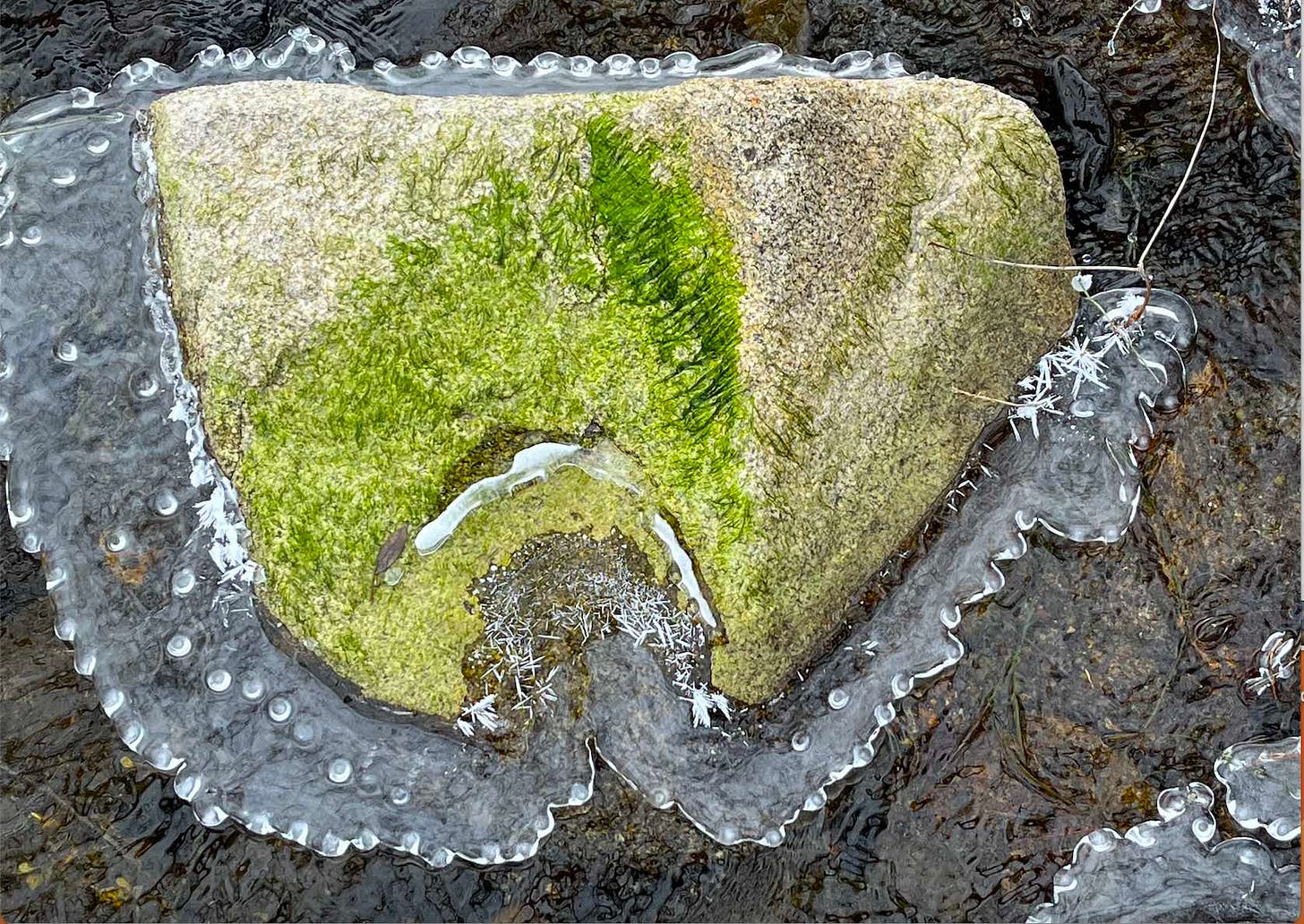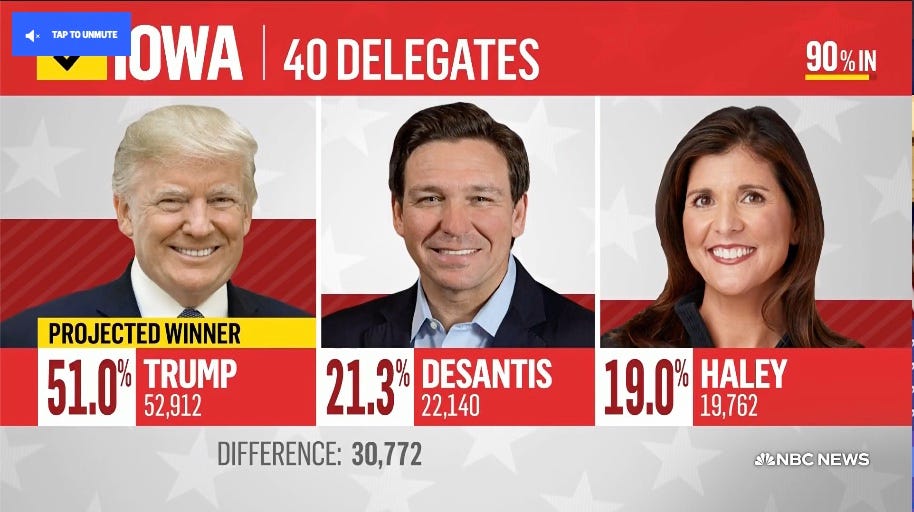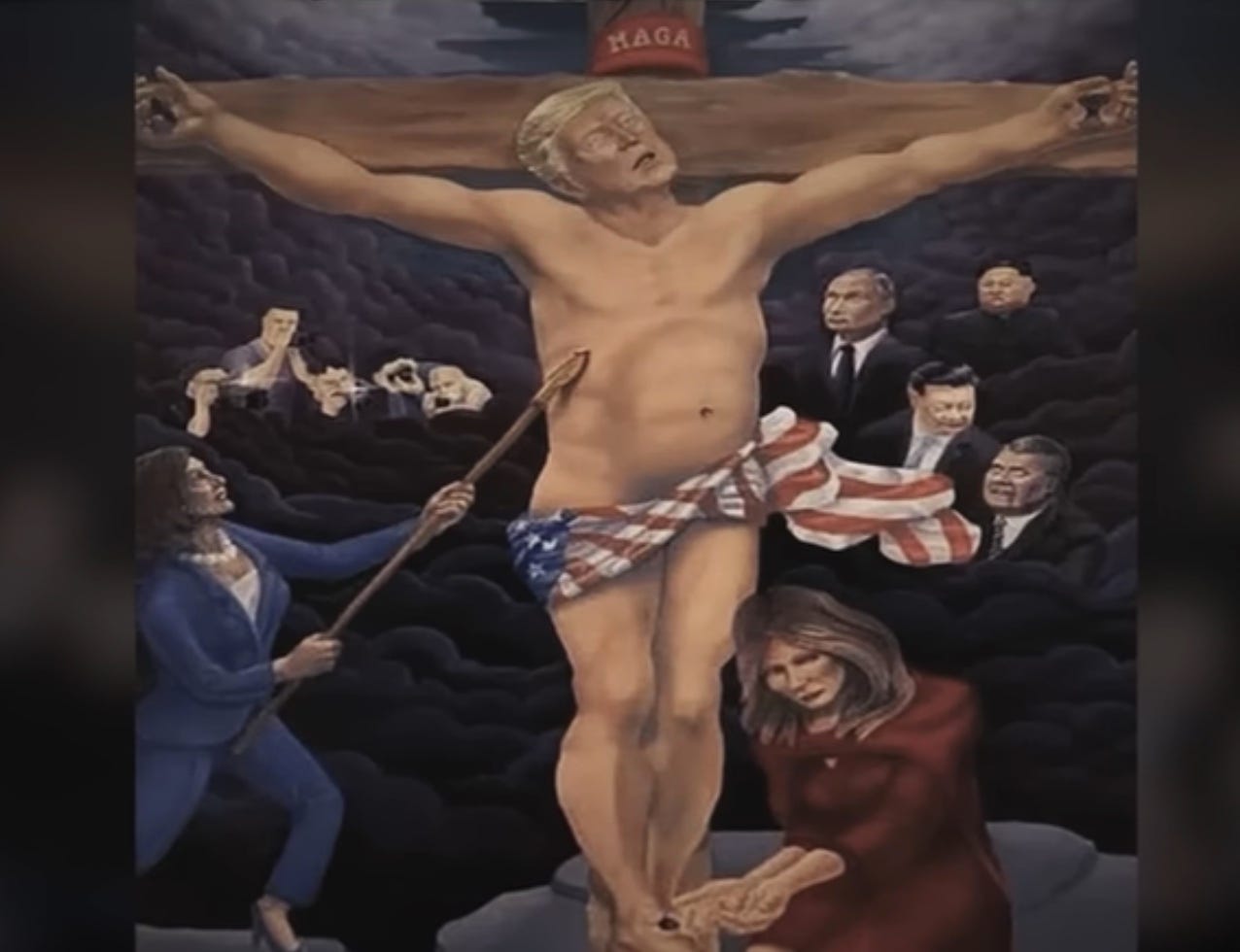Algae on granite, with hoarfrost and ice skirt
Becoming a Reader
There are some mysteries I doubt I’ll ever resolve and one of them has to do with albuterol—a broncho-dilating drug I could have used when I was a 12 year-old struggling to breathe. I didn’t learn about albuterol (aka Salbutamol) until I was 34. I’d gotten a cold (cross-country skiing in the rain) and it had worked its way into a severe case of bronchitis. I was hallucinating for lack of oxygen. Connie drove me to the emergency room at Sacred Heart and within minutes I was administered albuterol through a vaporizer. It immediately opened my airways. It was as though a camel had been lifted off my chest.
A few weeks later I learned Che Guevara had a condition identical to mine but he’d been able to motorcycle throughout South America with an albuterol inhaler. Why hadn’t my doctors in Panama known about this? Why didn’t I get an inhaler, like Che’s, when I was 12 and gasping for breath? (I imagine when most people see the iconic Che Guevara poster they see a revolutionary. I see a guy who had an inhaler.)
The silver lining in this story is that bronchitis kept me in my bedroom for days at a time. My mother coated my chest with Vicks Vaporub and brought me magazines (National Geographic, Life, Look, Sports Illustrated) and volumes from our Encyclopedia Brittanica. I was wheezing, for sure, but I could read deeply without distraction, not as a homework assignment reader, but as a reader who could visit all sorts of places even though I was stuck in a big, cushioned chair for days. I know this played a part in my desire to become a writer and a photographer. It’s how I met Theodore White, Rachel Carson, Gordon Parks, Brian Lanker, David Halberstam, Elizabeth Drew and John McPhee, among others.
Eventually, the career gateway to writing and photography was through daily journalism. Police scanners were fixtures in the first newsrooms I worked in because, like Pavlov’s bell, they pointed reporters to what matters most to daily journalists: crashes, house fires, drownings, mudslides and volcanoes, of course. Action stories, and fairly easy to write. Over time, though, you can see how this adrenal view of the world can distort and narrow one’s view.
Jesus, Trump, and the Evangelicals
My visceral suspicion of concocted events is part of the reason I found this week’s coverage of the Iowa Caucuses deeply annoying. It’s the sort of current event where the worst of the worlds of politics and journalism collide, with half-baked opinions and “spin room” talking point flying like verbal shrapnel.
The networks bring patriotic theme music for these sort of spectacles—to convey (I gather) some reverence for the 100,000 or so Iowans who brave the January cold to gather in high school gyms to divvy up delegates to political conventions. Journalists are all over it because voters and caucus-goers are real in ways that pollsters aren’t. Actual counting is involved. Giddyness abounds: It’s like free mojito night in the press lounge. And it was especially that way in February of 1988 when a televangelist, Pat Robertson, came in second to Bob Dole in the Republican half of the Iowa Caucuses, surpassing George W.H. Bush who would—despite this shocking setback—be elected president later that year.
By cultivating evangelical Christians and harnessing the powerful flock-gathering role that television preachers like Robertson (who died last June) can provide, both the Republican Party and the evangelical movement enhanced their power and influence. One trophy, of course, was the repeal of Roe v. Wade by a Republican-dominated Supreme Court in September of 2022, removing the Constitutional right to abortion.
That’s the surface story. But what is much more interesting and important are stories like the one David French wrote for the New York Times five days ago, entitled: The Greatest Threat Posed by Trump.
I live in the heart of MAGA country, and Donald Trump is the single most culturally influential person here. It’s not close. He’s far more influential than any pastor, politician, coach or celebrity. He has changed people politically and also personally. It is common for those outside the Trump movement to describe their aunts or uncles or parents or grandparents as “lost.” They mean their relatives’ lives are utterly dominated by Trump, Trump’s media and Trump’s grievances.—David French
Rendition of Trump on a crucifix from recent Lincoln Project television ad
French is a lawyer and gifted writer, but his column turns the evangelists-in-Republican-politics story completely around. Like the late Michael Gerson—the former George W. Bush speechwriter who became a Washington Post columnist—French is himself a Christian evangelical, nurtured in a world he often writes about. A decorated military veteran, he was born in rural Alabama and lives now in Franklin, Tennessee. His criticism of the close ties between Christian evangelicals and Donald Trump have earned him intense scorn from Trump supporters, including death threats to him and his family.
To continue reading please subscribe to The Daily Rhubarb









